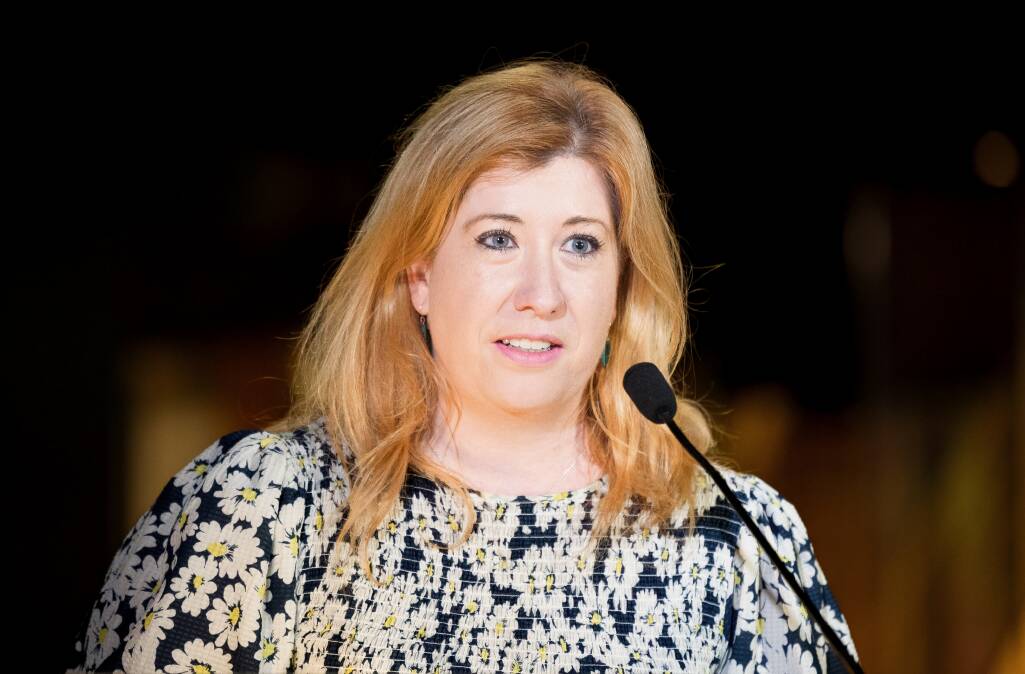The minister in charge of introducing voluntary assisted dying has said the ACT needs to stay vigilant to attempts to limit its ability to make its own laws, with a Senate inquiry into the Calvary public hospital takeover legitimising the idea of again overruling territory rights.
Human Rights Minister Tara Cheyne said she was disappointed by the inquiry, which had been instituted by Nationals senator Matt Canavan and passed with support from the federal Greens.
"I find it particularly egregious this level of interference in our ability to decide our own laws and make our own decisions for ourselves doesn't occur anywhere else," Ms Cheyne said.
Ms Cheyne said the inquiry was not just a simple matter of parliamentary process and it seemed the issue of the ACT's rights to govern itself were not settled.
"I think an inquiry legitimises the idea that our rights can be interfered with again, and it being so soon after our rights were restored with respect to voluntary assisted dying means we have to be vigilant," she said.

The inquiry will consider a bill introduced by Senator Canavan to amend the ACT's Self-Government Act, which would in turn force the ACT government to conduct an inquiry into its decision to acquire Calvary Public Hospital Bruce. It is not expected to pass the federal Parliament.
An ultimately successful 25-year campaign to restore the rights of the ACT and Northern Territory to legislate on voluntary assisted dying ended in December 2022 with the passage of a bill to repeal a ban.
Work has since been underway in the ACT to introduce a voluntary assisted dying scheme.
Ms Cheyne appeared before an ACT budget estimates hearing on Tuesday, where she said the government had not made a decision on allowing people aged under 18 access to a voluntary assisted dying scheme once it was introduced for the territory.
Asked whether the government would consider setting the age at 14, which would align with proposed changes to the age of criminal responsibility, Ms Cheyne said the government had yet to make a decision and rather than an age, a young person's decision-making capability would need to be assessed by a health professional.
People can arrive at decision-making capability at different ages, she said.
The ACT required further advice from its health professional community before it reached a final position on the eligibility of the scheme, she said.
"We did ask the community about whether 18 was seen as an appropriate age for access to voluntary assisted dying," Ms Cheyne said.
"I do want to underline, as I've mentioned several times, that this is asked in the context that voluntary assisted dying is for people who are already dying, and that it's also for people who have decision making capacity.
"And I think in some of the recent media that we've seen that's all been a bit lost in some of the commentary."
Ms Cheyne said decision-making capacity would need to be clearly defined and assessed on a case-by-case basis by health professionals.
"It wouldn't be available to young children or infants. ... I think I was surprised, actually, to the extent that there was not support for [a cut off at] 18 [and] that there was interest in exploring what an age that was different could be," she said.
Ms Cheyne said there was no clear model on how this would work presented as part of the community feedback.
"We did hear that mature young people suffering intolerably near the ends of their lives should have the same choices as adults. Many people who had views on the issue felt that imposing an age ignores the reality that teenagers who are suffering intolerably from a terminal illness may have decision making [capability]," she said.
We've made it a whole lot easier for you to have your say. Our new comment platform requires only one log-in to access articles and to join the discussion on The Canberra Times website. Find out how to register so you can enjoy civil, friendly and engaging discussions. See our moderation policy here.







